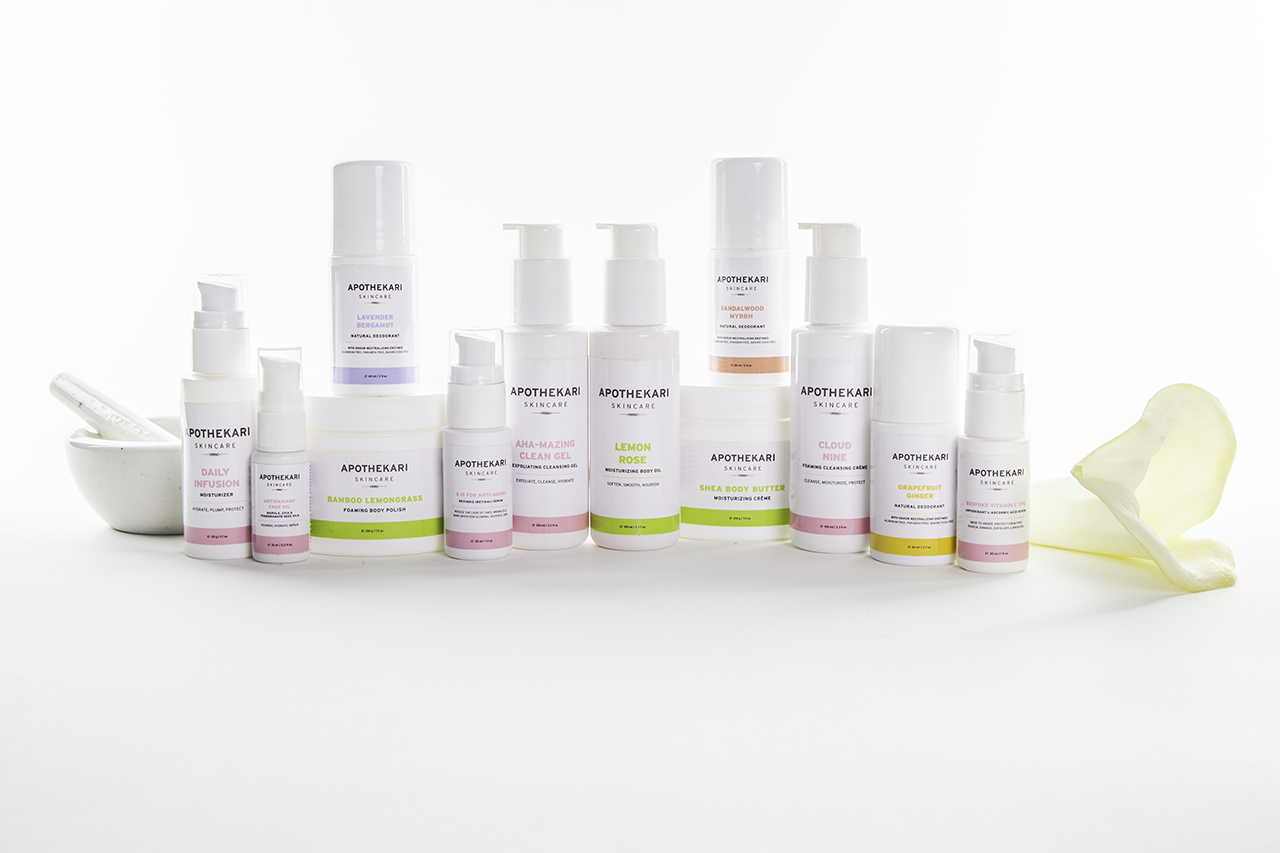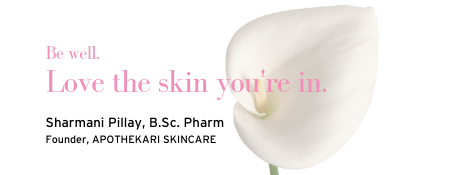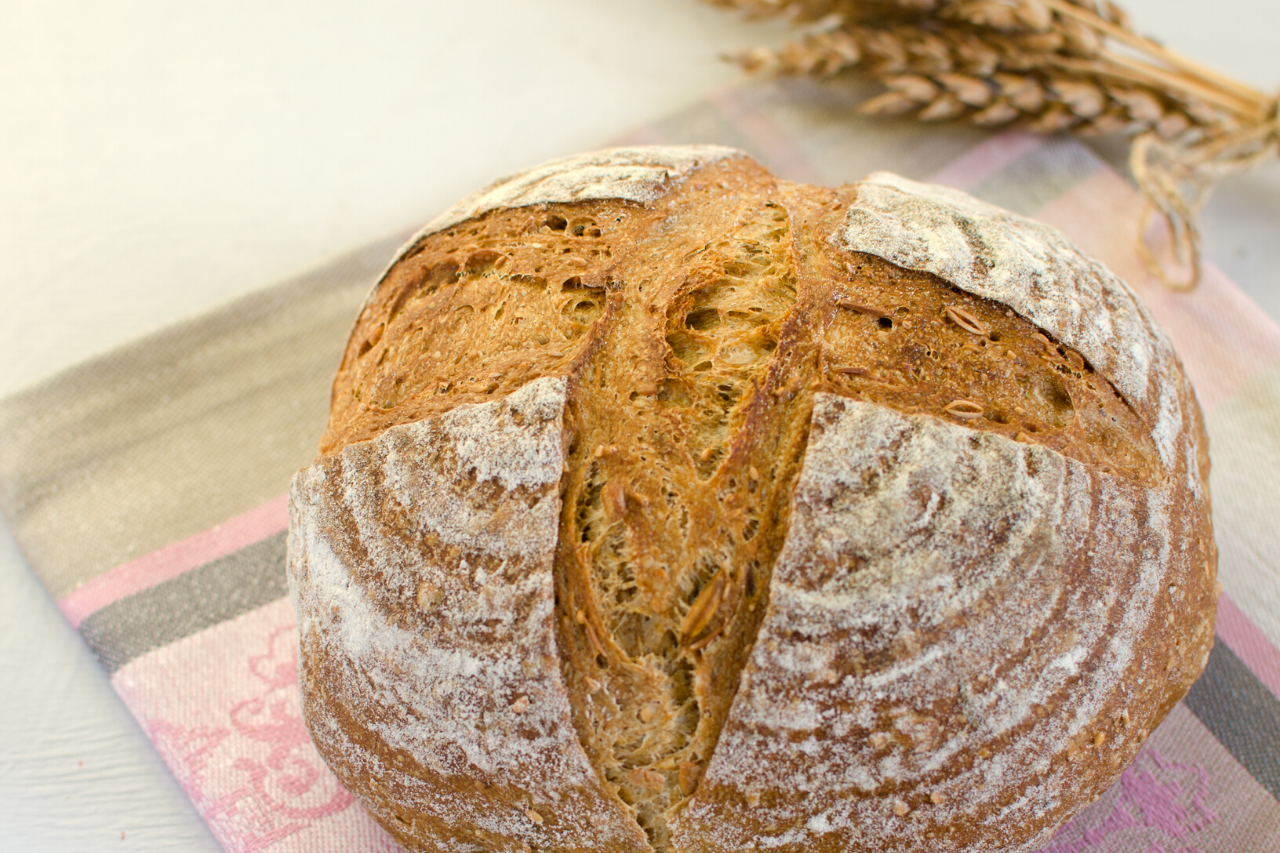A while ago we wrote about ‘Gluten Face’ (yes it’s a thing!) and now, let’s look at the relationship between gluten skin and your health. Learn more below!
SHOP APOTHEKARI
Buy at our online store PhaMix
Is Gluten Really Bad for You?
Over the past few years, gluten has taken a real bashing when it comes to your health. A protein found in grains like wheat, rye and barley, it also can turn up in other foods, through cross contamination. (ie, other grains like oats).
Know why we love bread so much? Yup, gluten. It gives baked goods their chewy deliciousness. It may taste great, but sadly, eating it may not be so good for some people. Not so serious, is gluten intolerance, which comes with a long range of symptoms when gluten-containing foods are consumed. Far more serious is Celiac Disease, a genetic, autoimmune condition, that occurs in people where eating gluten leads to damage in the small intestine. Nutrients can’t be absorbed properly into the body and long-term health complications follow, including:
- Iron deficiency anemia
- Early onset osteoporosis or osteopenia
- Infertility and miscarriage
- Lactose intolerance
- Vitamin and mineral deficiencies
- Nervous system disorders
- Gastrointestinal cancers
- Neurological issues including epileptic seizures, dementia, migraine, etc

*The following Apothekari products don’t contain any gluten – Bespoke Vitamin C Serum, AHA Exfoliating Cleansing Gel, Cloud Nine Foaming Cleansing Creme, Natural Deodorants (all), Daily Infusion Moisturizer. They are not certified gluten free.
Gluten Skin Implications You Should Know About
Whether you’re gluten intolerant or have Celiac Disease, the symptoms may be the same. And some individuals, especially those with Celiac Disease, may have no symptoms at all:
- Digestive issues such as gas, abdominal pain, cramping, bloating, constipation or diarrhea.
- Ongoing low energy levels, “brain fog,” chronic fatigue syndrome or fibromyalgia.
- Autoimmune disease such as Hashimoto’s thyroiditis, rheumatoid arthritis, ulcerative colitis, lupus, psoriasis, scleroderma or multiple sclerosis.
- Neurologic symptoms such as dizziness or feeling off balance.
- Hormone imbalances such as PMS, PCOS, delayed menstruation onset and stunted growth.
- Migraines and/or frequent headaches.
- Joint pain, inflammation and swelling, particularly in fingers, knees or hips
Gluten skin issues include eczema, rosacea, skin rashes, psoriasis and keratosis pilaris (also known as ‘chicken skin’ on the back of your arms).
Avoid Gluten in Skincare?
Should you avoid gluten in your skincare products if you’re intolerant or have Celiac Disease? The answer may surprise you. Turns out that applying vs ingesting gluten, are two very different things. According to Dr. Alessio Fasano, Medical Director of the Center for Celiac Research, University of Maryland, “If you have Celiac Disease, then the application of gluten containing products to the skin should not be a problem, unless you have skin lesions that allow gluten to be absorbed systemically in great quantities.” This advice can be carried over to lipstick and lip products, as they are easily ingested. Last, if you have active dermatitis herpetiformis, a skin condition associated with Celiac Disease, or any cuts or open lesion, then use gluten-free skincare products to prevent its absorption.
One caveat: If you have skin issues that won’t clear up no matter what you do, cut out gluten containing skincare products to see if it may help.
Should You Follow A Gluten Free Diet?
Following a gluten free diet is essential if you’ve tested positive for Celiac Disease. It’s not the same with gluten intolerance. Consumption doesn’t carry the same long-term health implications, but you’ll likely feel better if you avoid or restrict it in your diet. I’ve heard ‘experts’ suggest that you shouldn’t go gluten free unless you have Celiac Disease because a gluten free diet is expensive and that you’re going to load up on gluten free crackers, cookies and cakes. To which I say, REALLY?
I don’t know about you, but if I’m switching up my diet because of my health, it’s highly unlikely I’ll be loading up on Cheetos. In my family, we have two gluten intolerant individuals. And no, IT.IS.NOT.IN.THEIR.HEADS! Following a gluten free diet is essential to their wellbeing and as the primary food shopper and cook in our house, I’ve learned how to prepare nourishing and delicious meals.
Focus on foods that are naturally gluten free, which also tend to be great for your overall wellness:
- Meat, poultry, and eggs
- Fish and seafood
- Beans and legumes
- Fruits and vegetables
- Grains and starches including, corn, rice, buckwheat, millet, tapioca, oats (ensure not contaminate)
- Nuts
- Dairy
- Potatoes
- Vinegars and oils
- Herbs and spices
Gluten Skin & Health Resources
You know yourself best so if you need to go gluten free for your health, do it. And, don’t let anyone question why. Check in with a trusted healthcare professionial if you need guidance. And, visit the many trustworth resources online. Here are some to get you started:
- National Celiac Organization. A non-profit organization dedicated to educating and advocating for individuals with celiac disease and non-celiac gluten sensitivities,
- Celiac Disease Foundation. (CDF) is a nonprofit that helps fund research, education, and advocacy programs. Learn more about celiac disease and how to live gluten free.
- NIH. National Institutes of Health link to help you start on your GF journey
- US FDA. Information to help you read food labels.
- Gluten Intolearnce Group. Information for individuals with a gluten sensitivity.
- The Inspired RD. Alysa Bajenaru, a Registered Dietitian’s blog on navigating Celiac Disease. Great recipe inspiration.






